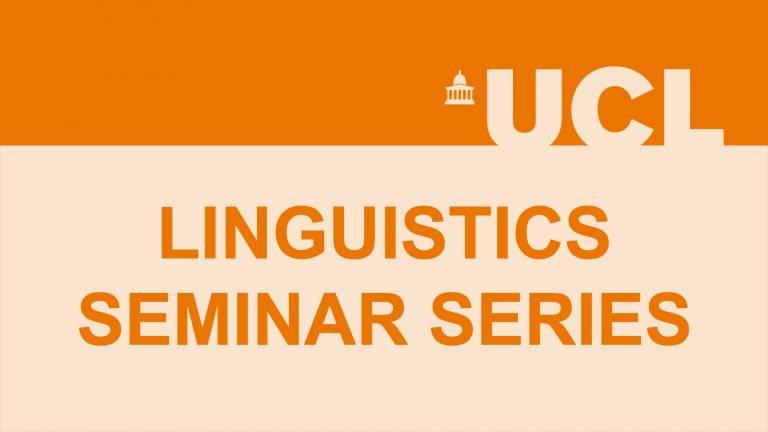Linguistics Seminar Talk - Anna Roussou
21 June 2023, 1:00 pm–3:00 pm

Wh-pronouns as indefinites: the case of Greek
Event Information
Open to
- All
Organiser
-
Richard Jardine
Location
-
Chandler House - B012 Wakefield StreetLondonWC1N 1PFUnited Kingdom
Wh-pronouns as indefinites: the case of Greek
The close affinity between indefinite and interrogative pronouns is known as the ‘indefinite-interrogative puzzle’ in typology (Bhat 2000; also, Haspelmath 1997), and is manifested in two types. In Type I, the indefinite and the interrogative share the same form (e.g., Chinese shenme). In Type II, the indefinite is derived from the interrogative, as in Greek (1):
(1a) pjos = who (1b) ka-pjos = someone (1c) o-pjos = who(ever) (free relative)
In the present talk it is argued that pjos is also an indefinite (see Bruening 2007 on wh-indefinites) which acquires an interrogative reading when licensed by an Interrogative operator at sentence level. Licensing at phrase level by prefixes ka- and o- excludes the interrogative reading. If wh-pronouns are indefinites, the distinction Type I and Type II reduces to a morphological (micro-) parameter with implications for syntax and semantics. The unavailability of the interrogative reading with the ka- (or o-) prefix is accounted for in terms of minimality. The unavailability of pjos in declaratives (positive or negative) is accounted for in terms of a requirement for licensing by a clause-typing operator. The comparative evidence shows that variation can arise as to whether the (wh-) indefinite is available in all declaratives (see Hengeveld et al 2021 on quexistentials) or a subset of those modulo the presence of a sentential or other operator.
About the Speaker
Prof Anna Roussou
at University of Patras/University of Cambridge
More about Prof Anna Roussou Close
Close

